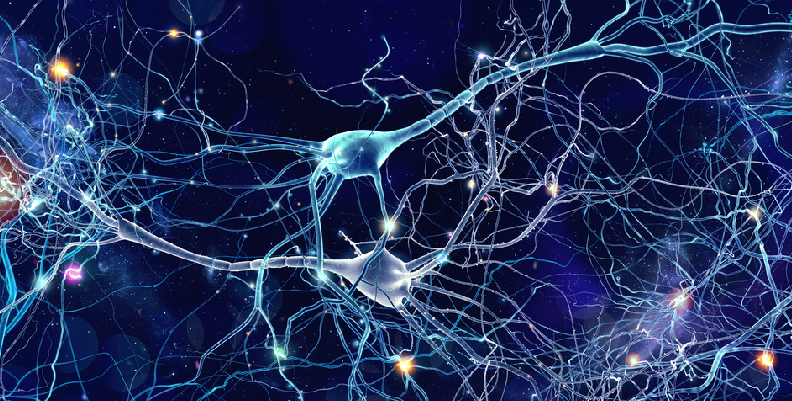
In our fast-paced world, where cognitive demands are constantly increasing, the quest for mental sharpness and enhanced reasoning skills is more pertinent than ever. Nootropics, often referred to as “smart drugs,” offer a promising avenue for boosting brain function and cognitive abilities. Deductive reasoning is a critical component of effective problem-solving and decision-making. By examining how nootropics influence neural pathways, we can better understand their potential to enhance this vital cognitive function.
Contents
Understanding Neural Pathways and Deductive Reasoning
To appreciate how nootropics might enhance deductive reasoning, it is essential to first understand the fundamental roles that neural pathways play in our cognitive processes. Neural pathways are the basis for how information is communicated and processed in the brain. They influence everything from simple reflexes to complex decision-making, including the critical task of deductive reasoning.
Overview of Deductive Reasoning
Deductive reasoning is a method of logical thinking that uses a general premise to reach a specific, logical conclusion. It is a foundational element of effective decision-making and problem-solving, allowing us to apply general rules to specific situations in a structured and thoughtful way. Enhancing deductive reasoning can lead to improvements in academic, professional, and personal environments.
Basics of Brain Function and Neural Connectivity
The human brain is a complex network of neurons, connected by pathways that transmit signals using neurotransmitters. These pathways are responsible for processing and storing information. When we engage in deductive reasoning, specific neural circuits are activated. These circuits are involved in processing logical sequences and reaching conclusions based on given premises. The efficiency and strength of these pathways greatly influence how effectively we perform such cognitive tasks.
Role of Neural Pathways in Logic and Reasoning
Neural pathways are not just conduits for transmitting impulses; they are also adaptable structures that can strengthen or weaken over time. This plasticity is crucial for learning and memory, and it plays a significant role in our ability to engage in logical thinking and reasoning. Efficient pathways facilitate faster and more accurate deductions, while underdeveloped pathways might hinder our logical capabilities. Thus, enhancing the functionality of these pathways could directly improve our deductive reasoning skills [1].
Impact of Enhanced Neuroplasticity on Deductive Reasoning
Neuroplasticity refers to the brain’s ability to change and adapt as a result of experience. This adaptability is not only vital for recovery from brain injury but is also crucial for cognitive enhancements such as improved memory and faster problem-solving skills. By promoting neuroplasticity, nootropics may encourage the development of more robust and efficient neural pathways, thereby improving the brain’s ability to perform deductive reasoning.

Common Nootropics and Their Cognitive Effects
Exploring the variety of nootropics available reveals a broad spectrum of compounds each with distinct effects on cognitive function. These substances, ranging from naturally occurring herbs to rigorously developed synthetic drugs, offer diverse mechanisms of action that can enhance brain function, particularly in the realm of logical and deductive reasoning.
Natural Nootropics
Natural nootropics are substances derived from plants and natural sources that have cognitive-enhancing properties. They are often preferred for their perceived safety profile and historical use in traditional medicine.
Ginkgo Biloba: Enhances Cerebral Blood Flow
Ginkgo Biloba is one of the most widely used herbal remedies for cognitive enhancement. It is reputed to improve blood circulation, which in turn can enhance the flow of oxygen and nutrients to the brain. This increased cerebral blood flow is believed to aid in maintaining cognitive functions, including focus, memory, and the processes involved in deductive reasoning.
Bacopa Monnieri: Improves Neural Communication
Bacopa Monnieri, another popular herb in the realm of cognitive enhancement, is known for its effect on enhancing neurotransmission. It primarily aids in the fortification of dendrites, which enhances neural communication. This improvement in neural communication is crucial for the processing speed and accuracy required in logical reasoning and problem-solving tasks [2].
Synthetic Nootropics
Synthetic nootropics are man-made substances designed to improve cognitive function with more pronounced and immediate effects compared to their natural counterparts.
Piracetam: Stimulates Acetylcholine Receptors
Piracetam is a derivative of the neurotransmitter GABA and is designed to enhance cognitive function without acting as a sedative or stimulant. It influences cognitive function by stimulating acetylcholine receptors in the brain, which are involved in the process of learning and memory. This stimulation supports cognitive processes including the enhancement of logical thinking and deductive reasoning.
Modafinil: Increases Alertness and Cognitive Function
Modafinil, originally developed to treat narcolepsy, has gained popularity for its off-label use as a cognitive enhancer. It is particularly noted for increasing alertness and preventing fatigue, which can significantly improve prolonged task-related performance and enhance one’s ability to engage in complex logical reasoning.
Comparison of Natural vs. Synthetic Nootropics
When choosing between natural and synthetic nootropics, one must consider factors like the desired speed and intensity of effects, potential side effects, and individual health conditions. Natural nootropics tend to offer more gradual and sustainable cognitive enhancements with a lower risk profile, making them suitable for long-term use. In contrast, synthetic nootropics typically provide more immediate and noticeable enhancements, which may be preferred in environments requiring rapid and high-stakes cognitive performance [3].
Scientific Studies on Nootropics and Deductive Reasoning
To substantiate the effects of nootropics on deductive reasoning, numerous scientific studies have been conducted. These studies not only provide insight into how nootropics impact cognitive functions but also offer a framework for understanding their potential benefits and limitations.
Research Methodologies
Research on nootropics utilizes a variety of methodologies, including randomized controlled trials (RCTs), double-blind placebo-controlled studies, and longitudinal research. These methods help ensure the reliability and validity of the findings. Participants in these studies are typically given cognitive tasks that measure aspects of logical thinking and deductive reasoning before and after the administration of nootropic substances. This approach allows researchers to directly observe the effects of nootropics on cognitive performance.
Key Findings from Recent Studies
Enhancement of Cognitive Flexibility
Studies on substances like modafinil have shown that they can enhance cognitive flexibility, allowing individuals to switch between thinking about two different concepts more efficiently and effectively. This is a key component of deductive reasoning.
Improvement in Working Memory
Research involving nootropics such as Piracetam has demonstrated improvements in working memory, which is crucial for holding multiple premises in mind while engaging in deductive reasoning.
Increased Mental Clarity and Focus
Natural nootropics like Ginkgo Biloba have been observed to increase mental clarity and focus, thereby facilitating deeper and more focused thinking necessary for complex deductive processes.
Analysis of Long-term Cognitive Benefits vs. Risks
While many studies report positive short-term effects of nootropics on cognitive functions, it is also important to consider the long-term implications. Some research suggests that prolonged use of certain synthetic nootropics may lead to dependency or diminished effects over time. Conversely, natural nootropics often show fewer adverse effects, making them suitable for long-term use. This aspect of the research helps individuals and healthcare providers make informed decisions about incorporating nootropics into cognitive health regimes, weighing the benefits against potential risks.

How Nootropics Influence Neural Pathways
Understanding the mechanisms through which nootropics influence neural pathways is crucial for appreciating their potential effects on cognitive functions, particularly deductive reasoning.
Mechanisms of Action
Nootropics affect brain function through several mechanisms, each contributing uniquely to cognitive enhancements.
Neurotransmitter Modulation
Many nootropics work by modulating neurotransmitter levels in the brain. For instance, substances like Piracetam increase the synthesis and release of neurotransmitters such as acetylcholine, which plays a pivotal role in learning and memory processes. By enhancing neurotransmitter activity, nootropics improve communication between neurons, facilitating better cognitive performance and more effective deductive reasoning [4].
Enhancement of Synaptic Plasticity
Synaptic plasticity is the ability of synapses to strengthen or weaken over time, crucial for learning and memory. Nootropics like Bacopa Monnieri are known to enhance synaptic plasticity by promoting the growth and proliferation of nerve endings. This not only aids in the formation of new memories but also enhances the brain’s capacity to reorganize existing knowledge, which is vital for logical reasoning and problem-solving.
Case Studies and Real-World Examples of Cognitive Improvements
Case studies provide concrete examples of how nootropics can affect cognitive functions in real-world scenarios.
Case Study of a Software Developer
A case study involving a software developer who began using a stack of modafinil and Bacopa Monnieri reported significant improvements in problem-solving skills and the ability to maintain focus on complex coding tasks. The developer noted an enhanced ability to logically deduce solutions to software bugs and a reduced frequency of cognitive fatigue.
Case Study of a University Student
Another case involving a university student who supplemented with Ginkgo Biloba during exam periods showed improved performance on logic and math tests. The student reported feeling more alert and capable of understanding complex deductive reasoning questions more efficiently.
References
[1] Performance enhancement at the cost of potential brain plasticity
[2] A Few Thoughts on Neuroplasticity and Nootropics
[3] What Are Nootropics?
[4] Nootropics
